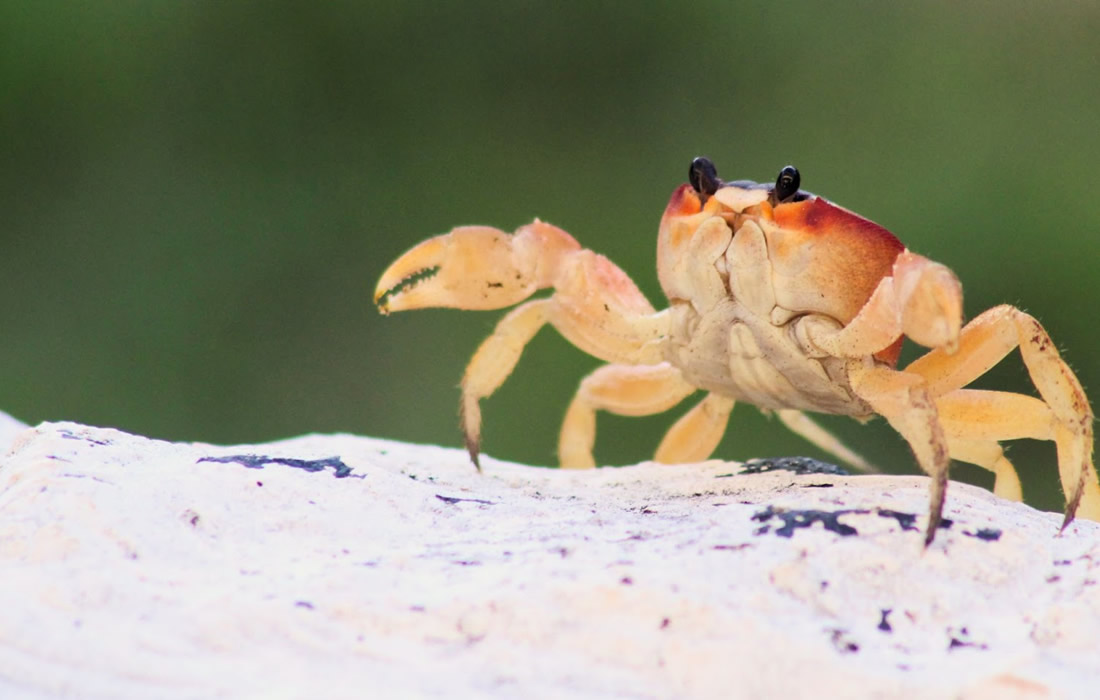Nutrition and Supplements
Benefiting the Metabolism with Crustaceans, Insects, and Mushrooms
Digesting a crunchy critter starts with the audible grinding of its rigid protective covering (the exoskeleton). Unpalatable as it may sound, the hard cover might be good for the metabolism, according to a new study, in mice.
The researchers, led by Steven Van Dyken, PhD, found in mice that digesting chitin, an abundant dietary fiber in insect exoskeletons and also mushrooms and crustacean shells, engages the immune system. An active immune response was linked to less weight gain, reduced body fat and a resistance to obesity.
The immune system is well known for safeguarding the body against various threats, including bacteria, viruses, allergens and even cancer. The researchers found that a particular arm of the immune system also is involved in chitin digestion. Stomach distention after chitin ingestion activates an innate immune response that triggers stomach cells to ramp up production of enzymes, known as chitinases, that break down chitin. Of note, chitin is insoluble — incapable of being dissolved in liquid — and thus requires enzymes and harsh acidic conditions to digest.
Do-Hyun Kim, PhD, performed the experiments in germ-free mice lacking intestinal bacteria. His results show that chitin activates immune responses in the absence of bacteria.
“We think chitin digestion mainly relies on the host’s own chitinases,” Van Dyken said. “The stomach cells change their enzymatic output through a process we refer to as adaptation. But it is surprising that this process is happening without microbial input, because bacteria in the gastrointestinal tract are also sources of chitinases that degrade chitin”.
The research team found that the greatest impact on obesity in mice occurred when chitin activated the immune system but was not digested. Mice fed a high-fat diet also were given chitin. Some mice lacked the ability to produce chitinases to break down chitin. The mice that ate chitin but couldn’t break it down gained the least amount of weight, had the lowest body fat measurements and resisted obesity, compared with mice that didn’t eat chitin and with those that did but could break it down.
If the mice could break down chitin, they still benefited metabolically, but they adapted by overproducing chitinases to extract nutrients from chitin.
Van Dyken and his team next plan to follow up on their findings in people, with a goal of determining whether chitin could be added to human diets to help control obesity.
Sources:
Do-Hyun Kim, Yilin Wang, Haerin Jung, Rachael L. Field, Xinya Zhang, Ta-Chiang Liu, Changqing Ma, James S. Fraser, Jonathan R. Brestoff, Steven J. Van Dyken. A type 2 immune circuit in the stomach controls mammalian adaptation to dietary chitin. Science, 2023; 381 (6662): 1092 DOI: 10.1126/science.add5649
Washington University School of Medicine. “Fiber from crustaceans, insects, mushrooms promotes digestion.” ScienceDaily. ScienceDaily, 7 September 2023. <www.sciencedaily.com/releases/2023/09/230907141931.htm>.
Images from:
Photo by Chandler Crutteden
https://unsplash.com/photos/lm0NmFbypcc

